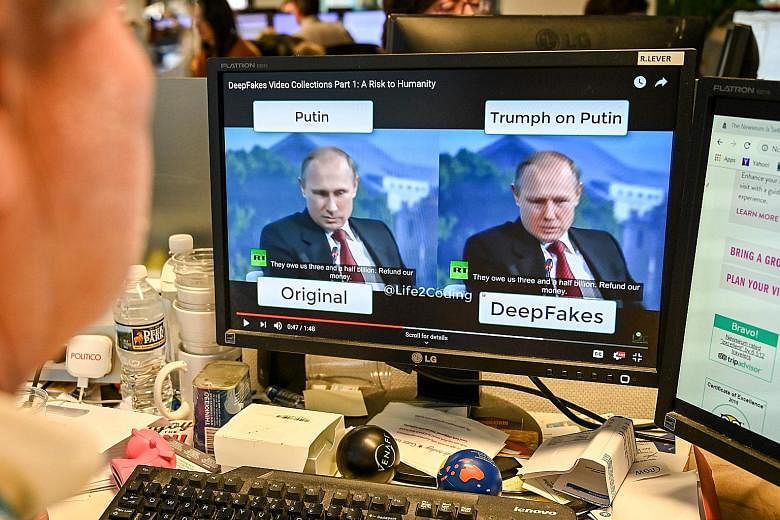BEIJING • China's top legislative body raised concerns on Saturday about a new artificial intelligence (AI) technology that can digitally swop people's faces.
The technology, known as "deepfake", is a human image synthesis technique based on AI that uses a combination of existing and source videos to create a false video that appears to show people doing things that never occurred in reality.
According to a draft law being deliberated by the Standing Committee of the National People's Congress (NPC), the use of the technology could violate individual portrait rights.
The draft clarifies that no individual or organisation may distort another person's picture or mimic voices using technology.
The draft, which was written to formulate a section of the country's civil code, was submitted to a bi-monthly session of the Standing Committee last Saturday for a second review.
"We added the prohibitions because some authorities pointed out that the improper use of AI technology not only damages people's portrait rights, but also harms national security and the public interest," said Mr Shen Chunyao, a senior legislator of the NPC's Constitution and Law Committee, while explaining the draft.
In February, the face of female actress Athena Chu was replaced with the face of another star, Yang Mi, in a television series with the aid of AI technology. The face-swopping video went viral on social media, causing mirth as well as concern.
"If some people improperly use the AI technology, which has been used often in film-making, online risks will emerge," said Mr Jue Ao, a cyber-security specialist at Alibaba.
In addition to regulating the use of the technology, the draft highlights the importance of protecting personal information details of juveniles, ordering people and institutes that attempt to collect it to first secure permission from their guardians.
Additionally, if a government department uses private information to do its job, it must neither reveal the personal information nor illegally provide it to others, the draft said.
CHINA DAILY/ASIA NEWS NETWORK

